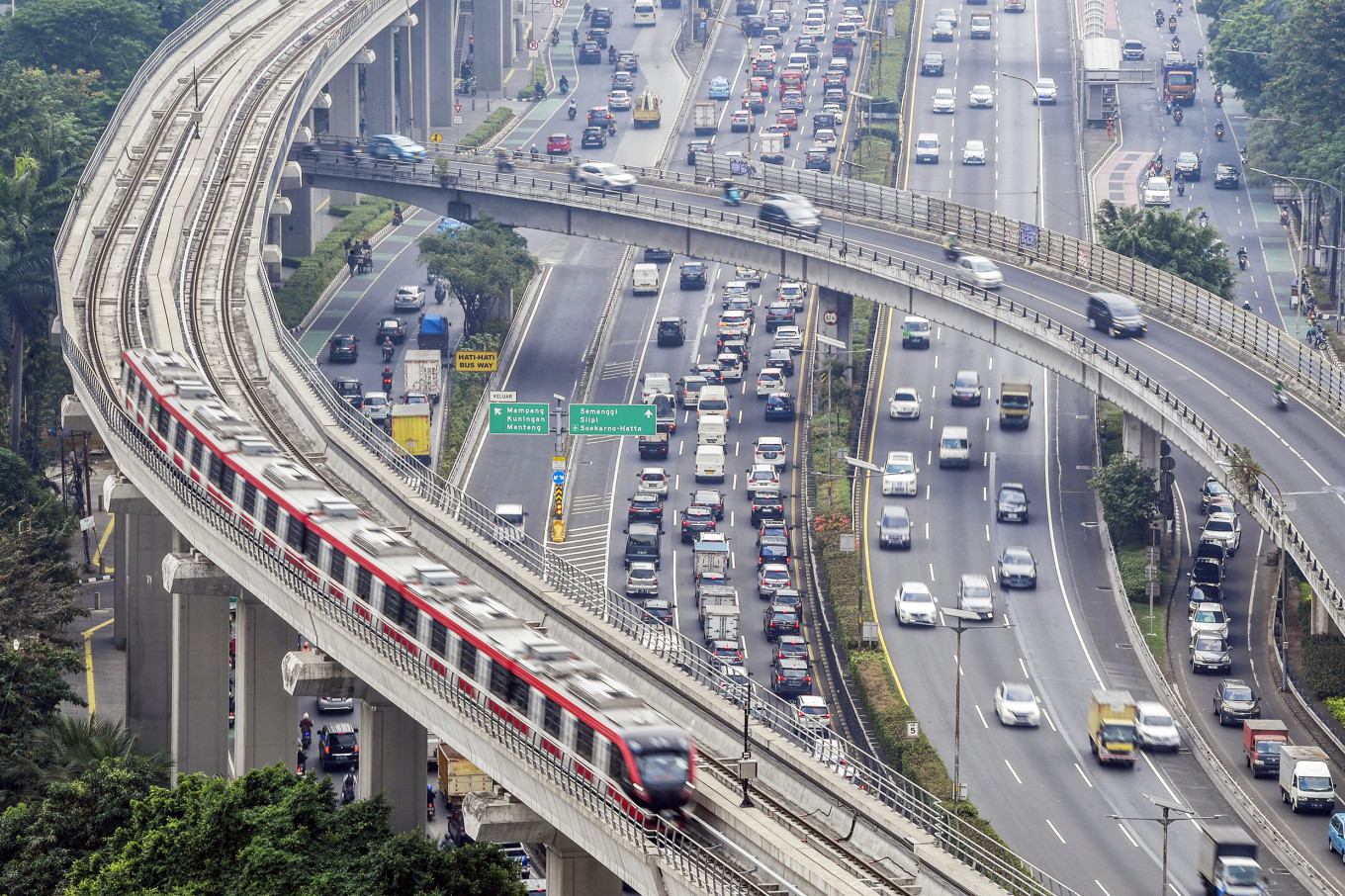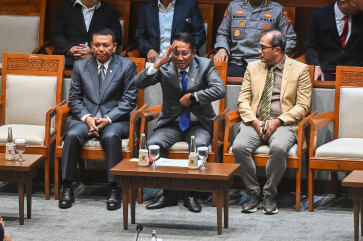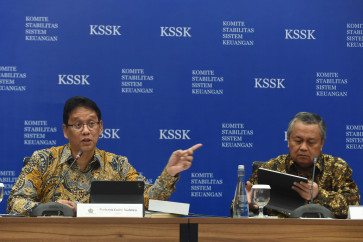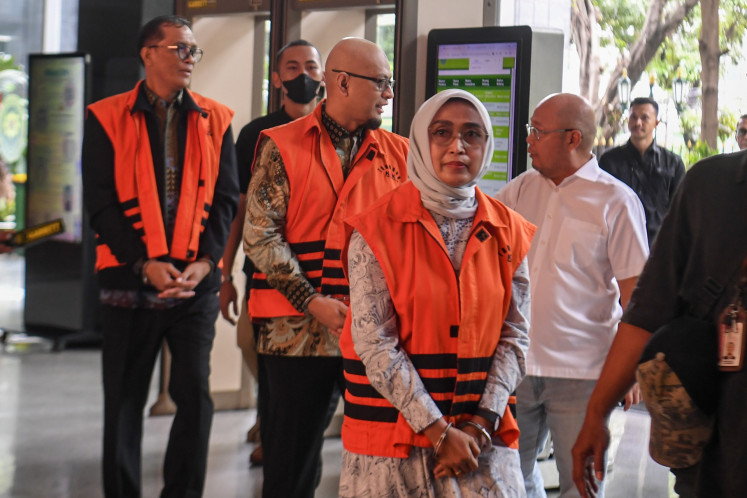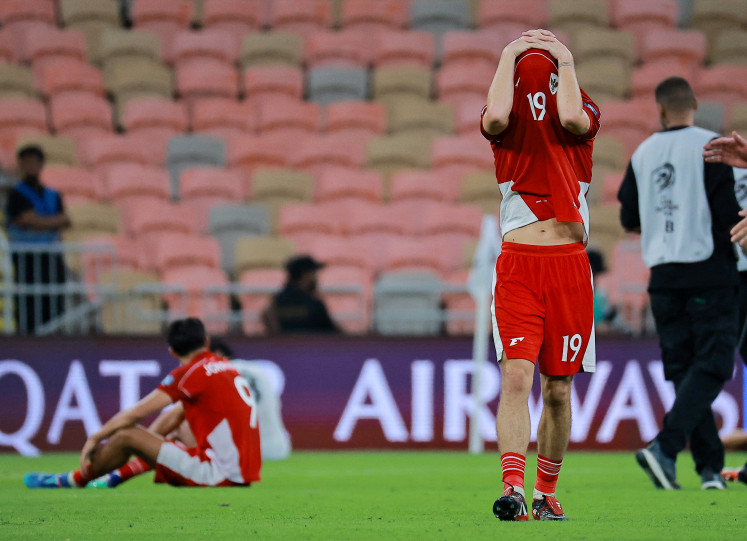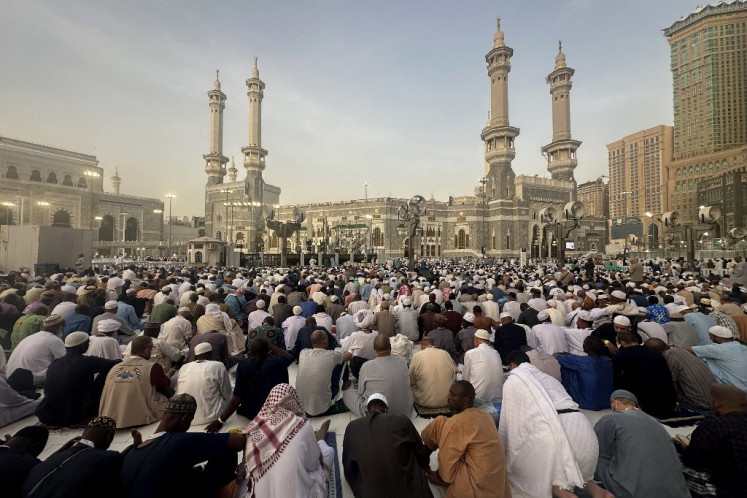Popular Reads
Top Results
Can't find what you're looking for?
View all search resultsPopular Reads
Top Results
Can't find what you're looking for?
View all search resultsCautious optimism as Jakarta celebrates ‘last’ anniversary as capital
Change text size
Gift Premium Articles
to Anyone
D
espite infrastructure improvements over the past decade, problems for an increasingly overburdened Jakarta have begun to rear their ugly heads once more as the city prepares to celebrate its 496th anniversary.
Land subsidence, worsening air quality and its perennial issue with traffic have regularly made headlines since the beginning of the year. But with the city set to lose its status as the nation’s capital next year, residents express cautious hope that the government’s eventual exodus could provide Jakarta with much-needed breathing room.
Describing her connections with Jakarta as a “love-hate relationship”, 32-year-old Catherine remarked that so far, no matter how much effort the city puts into fixing its problems, they never seem to go away.
“I know they’ve been opening new green spaces like Tebet Eco Park [in South Jakarta], but the air quality keeps getting worse. We now have the MRT, and TransJakarta is much better now compared to 10 years ago, but the traffic hasn’t improved,” Catherine told The Jakarta Post on Tuesday.
A customer service manager by trade, Catherine hopes that an exodus of government employees could buck the trend, no matter how small. “Hopefully, the traffic and pollution could lighten up a bit after they’ve moved out,” she said.
Despite the city’s chronic problems, however, Catherine had never seriously considered packing away to move somewhere else, despite being offered a position to lead her company’s new branch in Yogyakarta.
“I said no, eventually, as Jakarta has everything. This might seem silly, but most of the K-Pop concerts are in Jakarta,” Catherine remarked.
No easy solution
Despite plans for the seat of government to gradually be moved to the new capital city in East Kalimantan starting next year, President Joko “Jokowi” Widodo has been adamant that Jakarta would remain Indonesia’s commercial and tourism hub.
Perhaps nothing encapsulates this more than the annual Jakarta Fair in Kemayoran, North Jakarta, that is currently ongoing.
Held each year to celebrate the city’s anniversary on June 22, the month-long fair regularly features a grab-bag of festivities that includes a food festival, a series of music concerts, automotive exhibitions and other products on display ranging from household appliances to consumer goods, among others.
But this parade of excess extends to the city’s negative aspects, with rampant urbanization and poor urban planning resulting in an unchecked urban sprawl, problems that urban studies expert Nirwono Yoga said would not simply go away even with the capital’s relocation.
“The number of people moving to the new capital is not significant and people will still come to live in Jakarta and its satellite cities anyway, so its population will continue to grow”, Nirwono told the Post. He said only 1.5 million civil servants were expected to take part in the relocation, amounting to roughly 10 percent of the city’s population.
“Moving the capital city will not solve Jakarta’s land subsidence issue resulting from the over-extraction of groundwater, or its severe traffic congestion unless significant strategies are implemented to address these issues,” the scholar added.
Data from Statistics Indonesia (BPS) from 2022 showed that Jakarta had a population of 10.67 million. But the city’s trials and tribulations go far beyond that number, with the 30 million plus population of the Greater Jakarta agglomeration area, which encompasses the satellite cities of Bogor, Depok, Tangerang and Bekasi, all simultaneously experiencing and contributing to the problem.
Uninhabitable
A May study from Litbang Kompas, the research arm of Kompas daily, showed that even as Indonesia’s most developed region, the Jakarta metropolitan area is still far from being considered liveable.
According to the study, the majority of municipalities and regencies in the region only managed to score a liveability index of around 0.5 on a scale of 0 to 1, with 1 being the most liveable. The score itself is based on the four main parameters of environmental conditions, infrastructure, access to education and health.
And with even such a mediocre liveability score, access to decent, affordable housing remains a pipe dream for Bagas Wicaksono, who is still living with his wife at his parent’s house in Jatinegara, East Jakarta.
“We both make quite a bit more than the minimum wage, but even our choices are limited to either renting a studio apartment in the city or buying an affordable house some 50 kilometers [away from Jakarta],” Bagas told the Post on Tuesday.
The 28-year-old data analyst is fine with living in an apartment, but with properties in his price range having limited public transportation access, Bagas is still opting to live with his parents for the time being.
“Imagine if you could build apartments in the legislative complex [in Senayan], you could probably fit a dozen residential towers there,” Bagas mused.
Through city-owned transportation company MRT Jakarta, the city has finally begun making inroads on transit-oriented developments (TOD). But while the city has forged partnerships with coliving space providers Rukita and Cove, the space provided seems to be more suitable for individual, working tenants than burgeoning families, with Bagas likening them to “premium rooming houses”.
While the capital relocation could leave plenty of government buildings up for grabs, Nirwono said the chances of those buildings being repurposed for other uses are small.
"Almost all developers I talked to said that they were not interested. [...] They said they don't know how to use the buildings, although their locations are strategic, to remodel the buildings or to demolish them and construct new ones would be very expensive,” he said.

